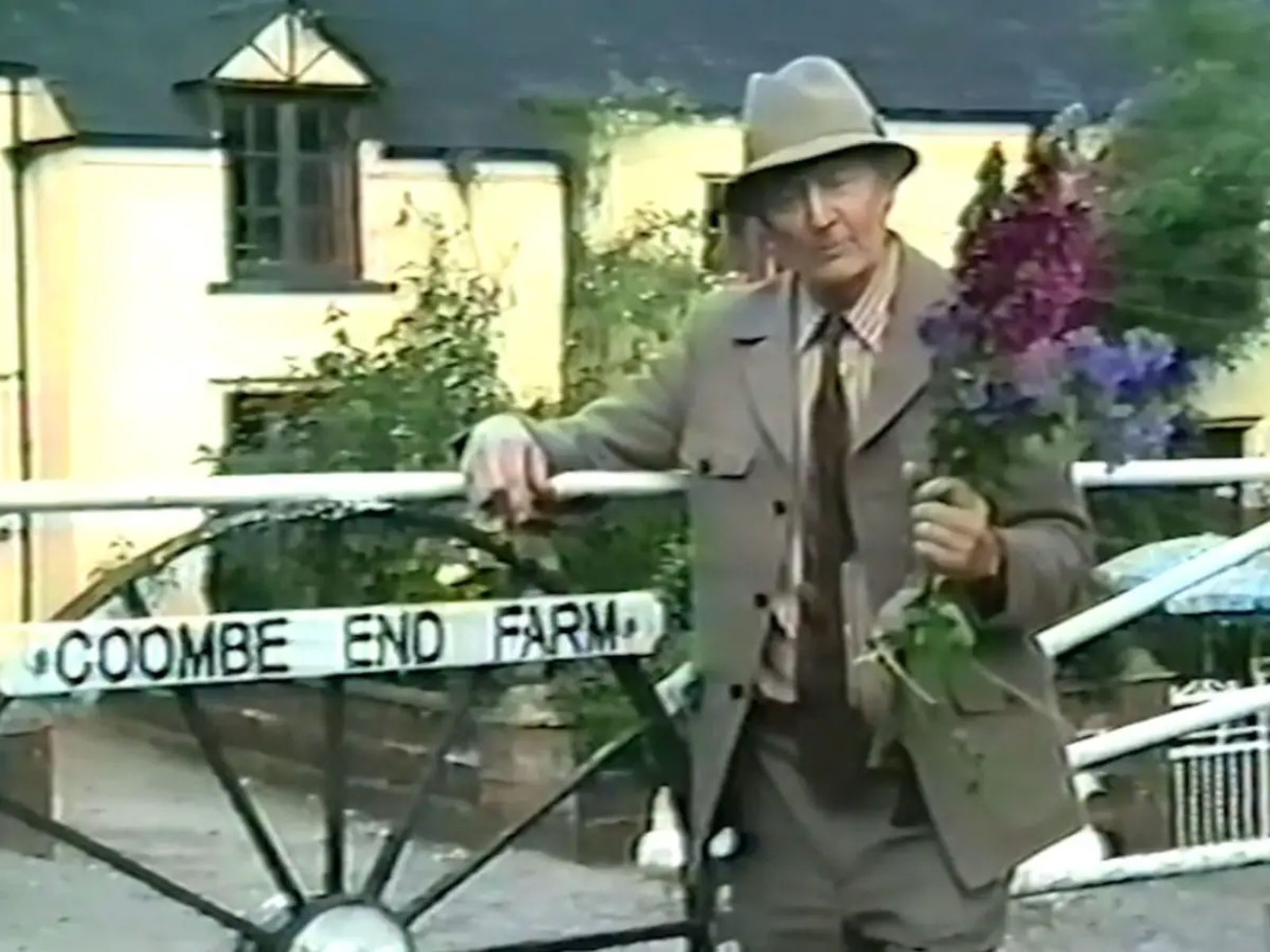A Life on the Farm is centered on the story of Charles Carson, a farmer who made experimental, absurdist home movies in his spare time. This information is immediately conveyed to the audience through a preview montage of talking heads discussing the footage, swinging back and forth between observers saying he was ahead of his time as a filmmaker while others compare him to the serial killer Ed Gein. There are glimpses of the oddities of his filmmaking: images of a cow having a calf extracted from its body in excruciating detail, or Carson feeding one of his chickens in an unconventional manner. This intro is composed in a manner not dissimilar to many made-for-television documentaries, its rapid-fire cutting designed to provide preview for audiences unsure if they wish to stick around for an otherwise unfamiliar documentary. The comparison to television is only exacerbated by the initial notes of the musical score, which are forceful and dramatic, implying that there are so many secrets to reveal and that the audience will be missing something if they don’t change the channel.
A Life on the Farm has very few filmmaking instincts beyond this comparison to the televisual. Much of its very short––yet obviously distended––75-minute runtime is simply director Oscar Harding recapping the films of Charles Carson before or after showing the relevant footage. Much of the rest comprises talking heads, some of whom are those who knew Carson and bear personal perspectives on his filmmaking; others are ostensibly there to analyze his films and their bizarre brilliance. The score is generic, escalating with thudding booms whenever there’s some reveal that Harding wants to make, but mostly remains twee and inoffensive as it lingers behind the interviewees. It is ironic that a documentary all about the creativity of an avant-garde artist has no creativity in its own construction.
Issues with A Life on the Farm are deeper than the lack of filmmaking bravura. Instead of initially positioning Carson as a singular creative that took a sincere love in crafting his own works of cinema, he is established as a truly peculiar man and eccentric, insane provocateur whose odd traits must be studied. But not entirely through the lens of his art. Within the first 30 minutes his behavior at his parent’s funeral is relentlessly psychoanalyzed, deconstructed both by those who knew him and those who didn’t. Regardless of whether or not he was acting strangely, this judgemental interrogation of his grieving process rings nasty and completely unnecessary. It doesn’t create the impression of Carson as a peculiar iconoclast, but rather a sense of exploitation on behalf of the filmmakers. By the time Life on the Farm pivots and professes to be an optimistic story about how anyone can create emotional, singular art, it’s difficult to take seriously.
There are always ethical concerns when it comes to making a documentary, particularly when its main subject is not alive to consent to how their image is depicted. While many talking heads herein seem adamant that a project like this is exactly what Carson would have wanted, no one will ever know. There is a real sense of discomfort created by certain ways he’s depicted and discussed, and those moments undermine the ethical integrity of this project. The most worthwhile moments are when footage Carson created is allowed to exist on its own, without the layer of those commenting on it. His work is something truly singular, a mesmerizing blend of the joyous and macabre. It is wonderful to be made aware of this footage, and that Carson’s name will be far more known now. It is also a shame that an uninspired, occasionally cruel documentary is the film to amplify his stature.
A Life on the Farm is now in theaters.

